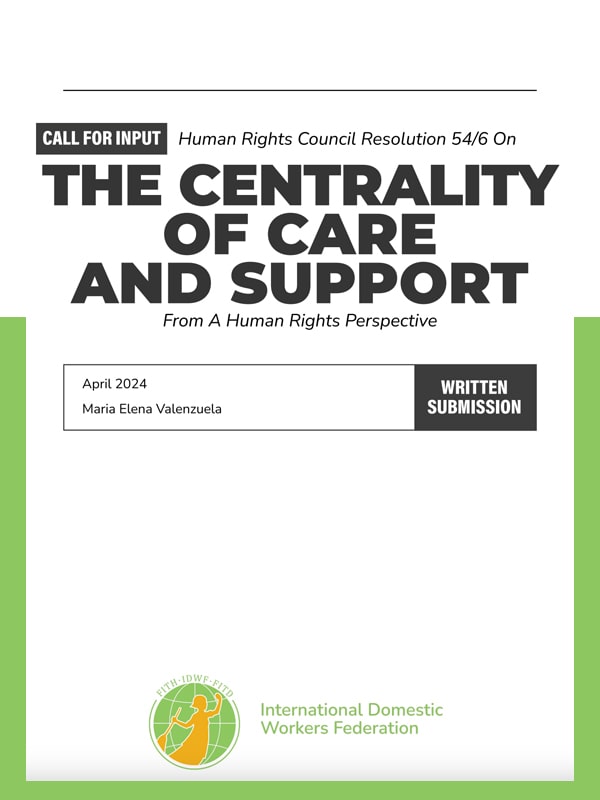
IDWFED Publications Research Reports

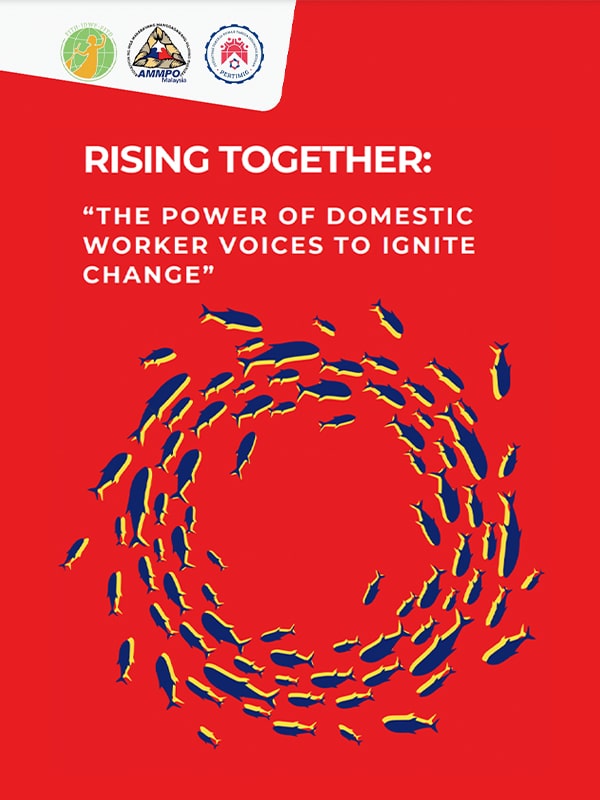
In 2018, IDWF conducted an assessment on the need for organising women migrant domestic workers in Malaysia….
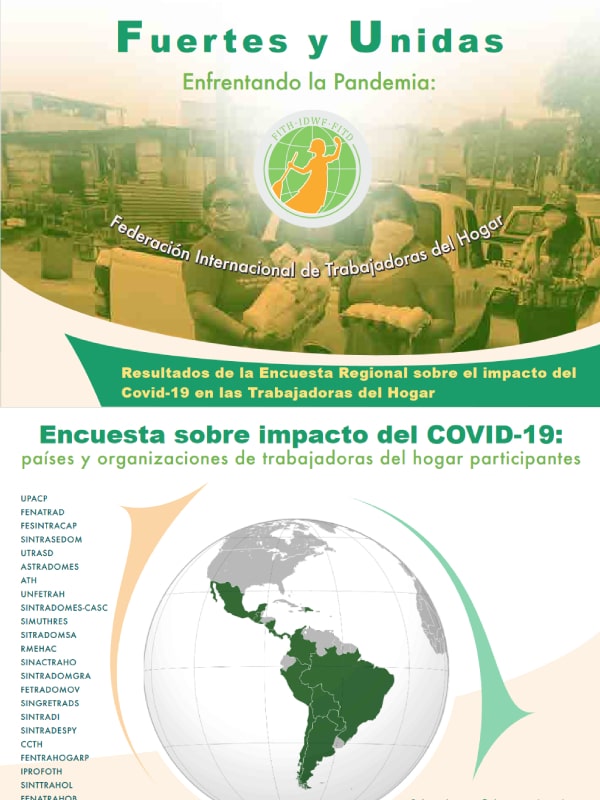
Domestic workers enter the crisis in very disadvantageous conditions…
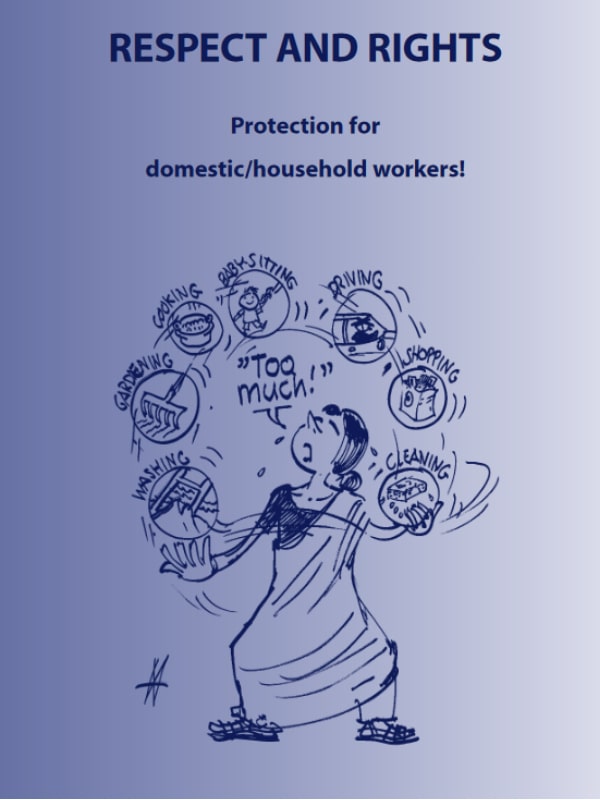
This is the report of an action conference held on 8-10 November 2006 in Amsterdam, at the headquarters of the FNV trade union federation of the Netherlands. The participants were

Why We Wrote this document: Over the past few years, something historical has been happening. The world’s domestic workers have been mobilising, not only in our own countries and regions
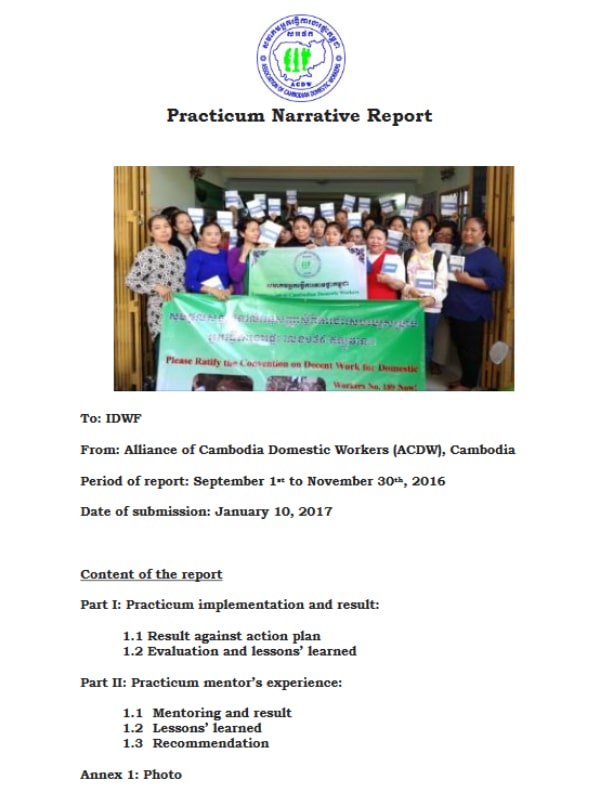
The IDWF has included in its 5 years strategic plan (2016 – 2020) the goal to train 950 domestic workers leaders. In 2016 with support of the ILO-Promote, SASK in
In this manual published by IDWN and ILO, we present the voices, experiences and visions of domestic workers. It aims...
An Overview Hosted by Krithika Dinesh, this podcast series delves into the struggles and successes of domestic workers across Asia....
You can download here English French Spanish
...